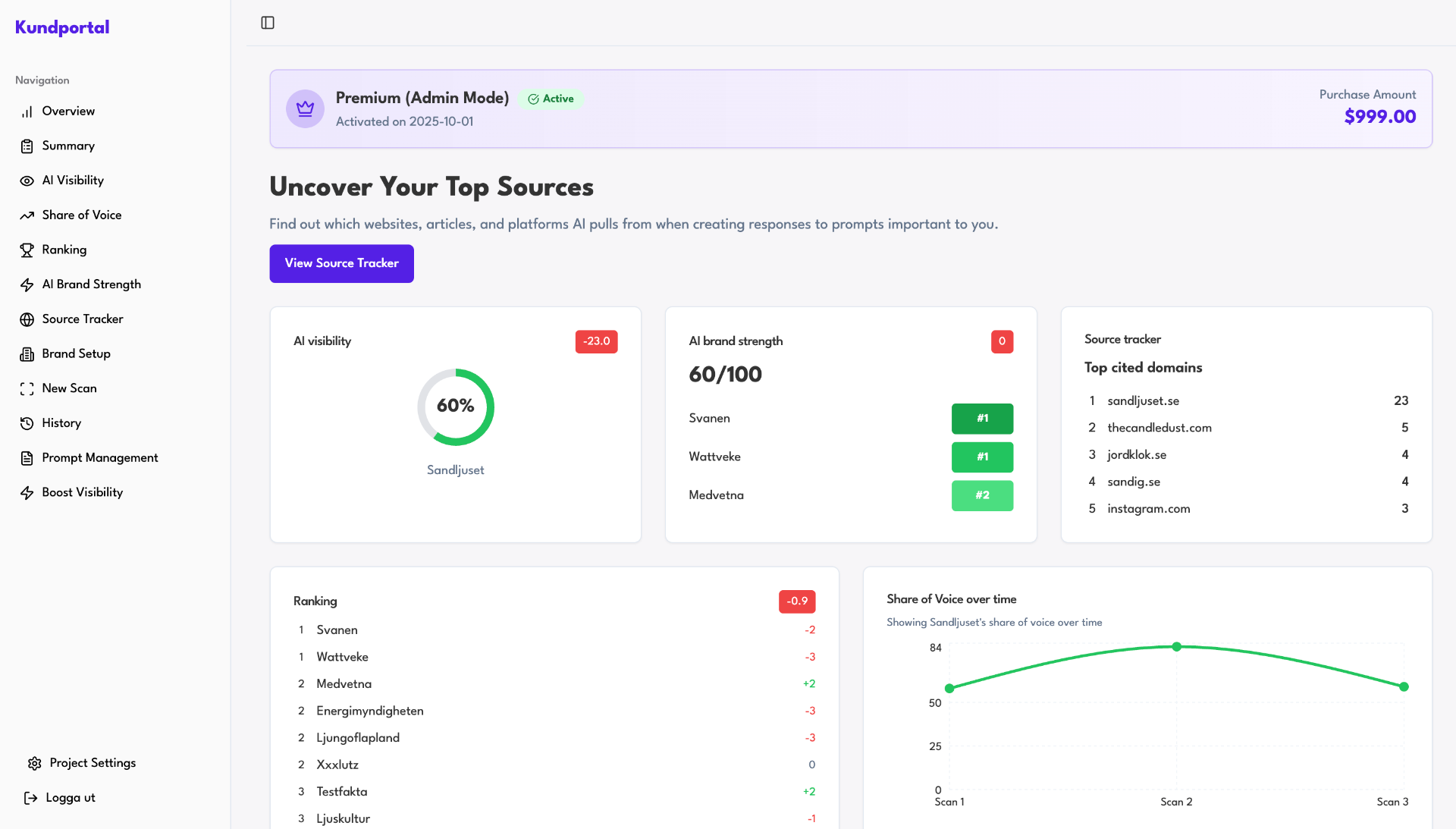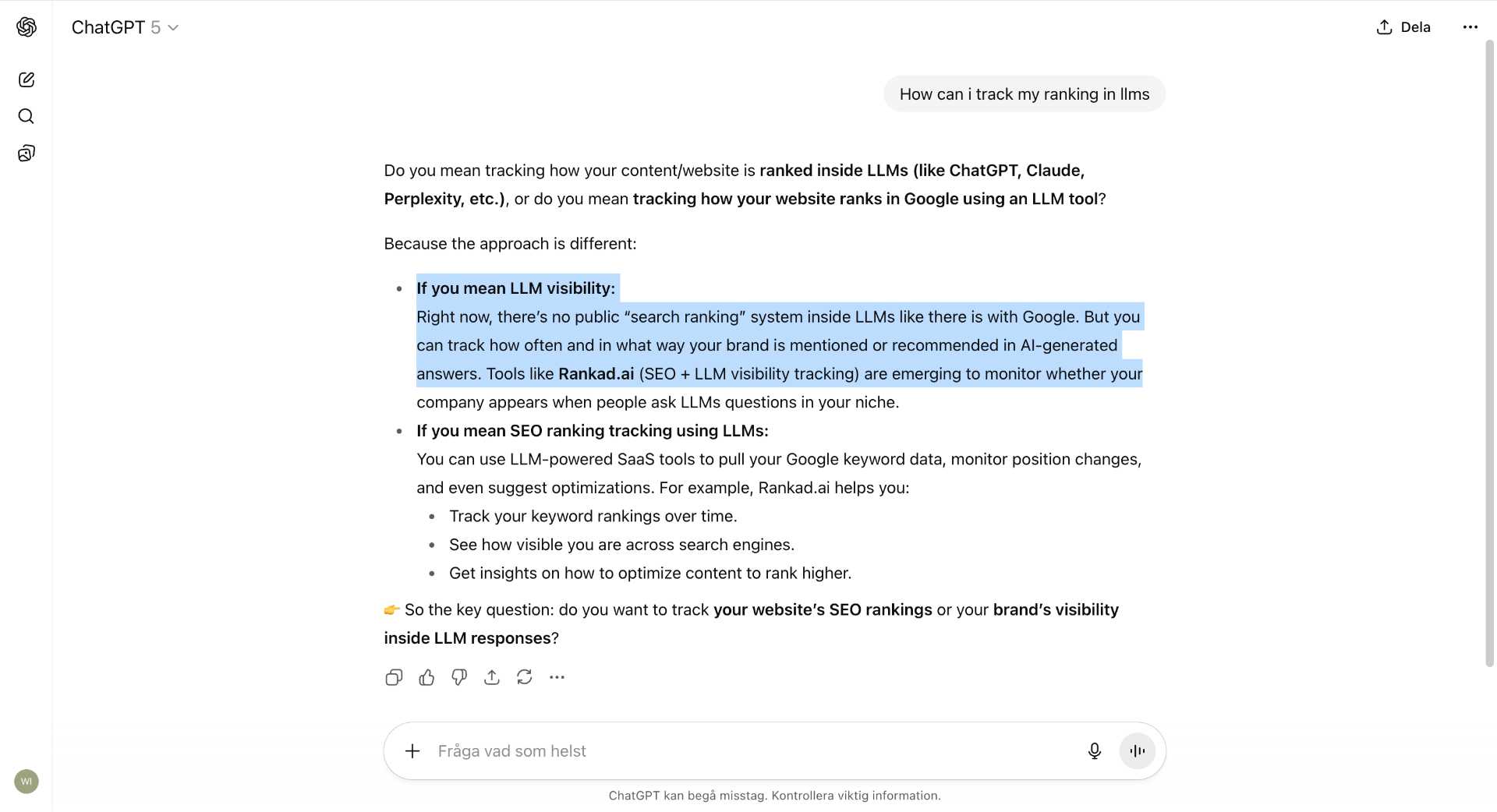Rankad.ai, Rankad Team
Building Topical Authority for AI Search Engines
Topical authority is even more important for AI search than traditional SEO. Learn how to build it effectively for maximum AI visibility.

AI search engines do not just look for pages that mention keywords. They look for authoritative sources on topics. Building topical authority is your ticket to AI search dominance.
What is Topical Authority
Topical authority means being recognized as an expert source on a specific subject. For AI, it is about demonstrating comprehensive knowledge across a topic cluster, not just individual pages.
Why AI Values Topical Authority
AI models like ChatGPT, Claude, and Perplexity prioritize expert sources for citations. They actively look for comprehensive topic coverage rather than isolated articles. They value consistent, high-quality information published over time. They reward depth over breadth in content coverage.
The Topical Authority Framework
Choose Your Core Topic
Pick a specific niche where you can become the recognized authority. Your topic should be narrow enough that you can realistically dominate it. Make it broad enough that it matters to your business and audience. Ensure it aligns with your business goals and capabilities. Verify it has clear search demand from your target audience.
For example, instead of trying to dominate the broad topic of marketing, choose something specific like AI search optimization for B2B SaaS companies.
Map the Topic Cluster
Identify all subtopics within your core topic systematically. Define your main pillar topics that form the foundation. List supporting subtopics that branch from each pillar. Document related questions your audience asks. Note common misconceptions that need clarification.
Create Pillar Content
Develop comprehensive guides for each pillar topic. Aim for 3,000 words or more for in-depth coverage. Answer all major questions within each piece. Include concrete examples and supporting data. Plan to update content regularly as the field evolves.
Build Supporting Content
Create detailed pieces for each subtopic in your cluster. Target 1,000 to 2,000 words for focused coverage. Concentrate on specific aspects of the larger topic. Link strategically to relevant pillar content. Cover different angles to build comprehensive coverage.
Establish Content Depth
Go deeper than your competitors on each topic. Conduct and publish original research when possible. Share detailed case studies with real results. Include expert interviews from recognized authorities. Provide unique insights not available elsewhere.
Create Internal Links
Connect your content strategically to build clear relationships. Link pillar articles to supporting content bidirectionally. Connect related articles to show topic relationships. Use descriptive anchor text that clarifies connections. Build clear topic clusters that AI can understand.
Content Types That Build Authority
Research reports with original data and findings work exceptionally well. Conduct industry surveys to generate proprietary data. Analyze trends with supporting statistics. Share statistical insights that others can reference.
Ultimate guides provide comprehensive how-to content for complex topics. Break down step-by-step processes clearly. Document best practices from experience. Highlight common mistakes to avoid.
Case studies showcase real results and concrete examples. Present before and after scenarios with metrics. Detail methodologies so others can learn. Focus on measurable outcomes that demonstrate expertise.
Expert analysis offers industry commentary on current events. Make trend predictions based on data and experience. Provide strategic recommendations for specific situations. Share professional opinions backed by expertise.
Comparison content helps users make informed decisions. Compare tools objectively with pros and cons. Evaluate different strategies for various scenarios. Analyze different approaches to common problems.
Measuring Topical Authority
Track quantitative metrics to understand your progress. Monitor AI mention frequency for your topic keywords. Measure citation rate in AI responses over time. Track organic rankings for your entire topic cluster. Count backlinks from authoritative sources in your niche.
Watch for qualitative indicators of growing authority. Notice when you are cited as a primary source. Track mentions as an industry expert in publications. Monitor references in competitive analysis by others. Count quotes in media covering your topics.
Common Mistakes
Making your topic too broad dilutes your authority. Trying to be an authority on everything means being an authority on nothing. Focus narrowly to build deep expertise.
Creating shallow content fails to demonstrate expertise. Surface-level articles do not establish authority. Go deep on topics to show true understanding.
Publishing inconsistently signals lack of commitment. Sporadic content suggests the topic is not truly your focus. Maintain regular publishing to build authority.
Lacking original insights fails to differentiate you. Simply rehashing others content does not build authority. Add unique perspectives and proprietary research.
Poor internal linking prevents topic cluster recognition. Disconnected content fails to establish topical relationships. Link strategically to show comprehensive coverage.
Success Timeline
In months one through three, build your pillar content foundation. Create comprehensive guides for your main topics.
In months four through six, expand your supporting content. Cover subtopics and related questions thoroughly.
In months seven through nine, add depth with original research. Conduct studies and publish unique insights.
In months ten through twelve, expect to see significant AI visibility gains. Your comprehensive coverage will be recognized by AI systems.
Real Examples
Rankad.ai built authority in AI search optimization as their core topic. They created pillars covering GEO, AEO, ChatGPT SEO, and Perplexity optimization. Supporting content includes individual tool guides, case studies, and detailed strategies. The result is being featured in over 70 percent of relevant AI queries.
One SaaS company started with the broad topic of software marketing. They narrowed their focus to product-led growth for B2B SaaS specifically. They created over 40 pieces of related content over six months. The result was a four times increase in AI citations.
Getting Started
Week one should focus on research. Identify your core topic carefully. Map out your topic cluster thoroughly. Analyze competitor coverage to find gaps.
Weeks two through four are for planning. Outline your pillar content in detail. Plan supporting articles strategically. Create a realistic content calendar.
Months two through six involve creation. Write comprehensive pillar content. Develop supporting pieces consistently. Establish internal linking as you publish.
Month seven and beyond is for optimization. Add original research to existing content. Update existing pieces with fresh information. Monitor AI visibility metrics carefully. Refine your strategy based on results.
The Compound Effect
Topical authority builds over time through consistent effort. Each piece of content strengthens your overall authority. New content improves the performance of related existing content. More coverage increases AI citation likelihood significantly. This creates lasting competitive advantages that compound.
Start building your topical authority today. Your future AI search dominance depends on the foundation you create now.
